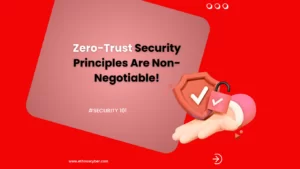How to secure a WordPress website: Before delving into the topic, “how to secure a WordPress website,” there is a need to explain what WordPress is, the different types of WordPress hosting options, then the cyber threats and attacks associated with it.
How to secure a WordPress website

There is no doubt that WordPress is the world’s most popular content management system (CMS). It powers over 40% of all websites on the internet. It is a hosting platform that allows users to easily create websites, blogs, and online stores. WordPress offers a user-friendly interface, a wide range of themes and plugins, and a robust community of developers, making it an attractive choice for beginners and experienced website owners.
WordPress.com vs. WordPress.org
“WordPress.com” is a hosted platform where you can create a website on a subdomain (e.g., mywebsite.wordpress.com) without needing to manage the technical aspects. On the other hand, “WordPress.org” is a self-hosted platform that allows you to install WordPress on your domain and gives you full control over your website’s customization and security.
Popular Cyber Attacks Against WordPress Websites
WordPress’s popularity also makes it a target for cyber attacks. Hackers often exploit vulnerabilities in poorly secured WordPress websites to gain unauthorized access, deface content, steal sensitive information, or install malicious software. Some common cyber attacks against WordPress websites include:
a. Brute Force Attacks:
In brute force attacks, the hackers attempt to crack passwords by systematically trying different combinations until they find the correct one to gain access to the website.
b. SQL Injection Attacks:
SQL injection attacks involve inserting malicious SQL code into input fields to manipulate the website’s database, potentially granting unauthorized access or causing data breaches.
c. Cross-Site Scripting (XSS) Attacks:
XSS attacks inject malicious scripts into web pages, thus leading to the theft of user data or the redirection of visitors to malicious websites.
d. DDoS (Distributed Denial of Service) attacks:
In a DDoS attack, a website is flooded with excessive traffic, making it unavailable to legitimate users.
Steps to Secure a WordPress Website
Knowing how to secure a WordPress website is crucial to protect it from cyber-attacks and ensure your data’s and visitors’ safety. Follow these essential steps to enhance the security of your WordPress website:
a. Keep WordPress and Plugins Updated:
Regularly update WordPress core files, themes, and plugins to patch security vulnerabilities. You should always enable automatic updates to keep your software up-to-date and secure.
b. Use Strong Passwords:
Set strong and unique passwords for your WordPress admin account, FTP, and database. Avoid using default usernames like “admin,.” Also, make use of a password manager to ensure the highest level of security for your passwords.
c. Limit Login Attempts:
Implement a limit on login attempts to prevent brute-force attacks. After several failed login attempts, temporarily block the IP address to deter hackers.
d. Install a Web Application Firewall (WAF):
A WAF can filter and monitor incoming traffic, blocking malicious requests and known attack patterns before they reach your website.
e. Enable HTTPS:
Secure your website’s communication with visitors by using an SSL certificate. HTTPS not only secures sensitive information but also improves your website’s search engine ranking.
f. Regular Backups:
Maintain a secure backup of your website regularly.
In case of a security breach or data loss, backups will help you restore your website to a previous, secure state.
g. Use Secure Hosting:
It is important to choose a hosting provider that provides automatic backups, server-side security, and regular software updates with a reputation for success.
h. Use Reliable Themes and Plugins:
It is advisable to only download and install plugins and themes from reliable sources.
i. Change Default URLs:
Change the default URLs for your WordPress login page and admin dashboard. This will make it harder for hackers to find the login page and attempt unauthorized access.
j. Disable Directory Listing:
Prevent directory listing on your server to avoid exposing sensitive information about your website’s file structure.
Best Cyber Security Company to Hire
When it comes to ensuring the utmost security for your WordPress website, partnering with a reliable cyber security company like Ethnos can offer invaluable expertise and protection. Ethnos is renowned for its proactive approach to cyber security and its ability to tailor solutions to meet individual website security needs.
Ethnos’s Approach to WordPress Website Security
a. Comprehensive Website Assessment:
Ethnos conducts thorough website assessments to identify vulnerabilities and weaknesses that cybercriminals may exploit.
b. Customized Security Solutions:
Ethnos offers tailored security solutions, ensuring your WordPress website receives the most appropriate protection against cyber threats.
c. Advanced Security Measures:
Ethnos leverages cutting-edge technologies and tools to provide top-tier security solutions for WordPress websites.
d. Ongoing Support and Monitoring:
Ethnos provides continuous support and monitoring to detect and respond promptly to potential security breaches.
It is crucial to know how to secure a WordPress website against cyber attacks and to ensure the security of your visitors and data. You can significantly enhance your website’s security by following best practices like regular updates, strong passwords, WAF implementation, and reliable hosting. Additionally, partnering with a reputable cyber security company like Ethnos can provide expert guidance and customized solutions to safeguard your WordPress website from potential threats, allowing you to focus on delivering valuable content and a seamless user experience.


